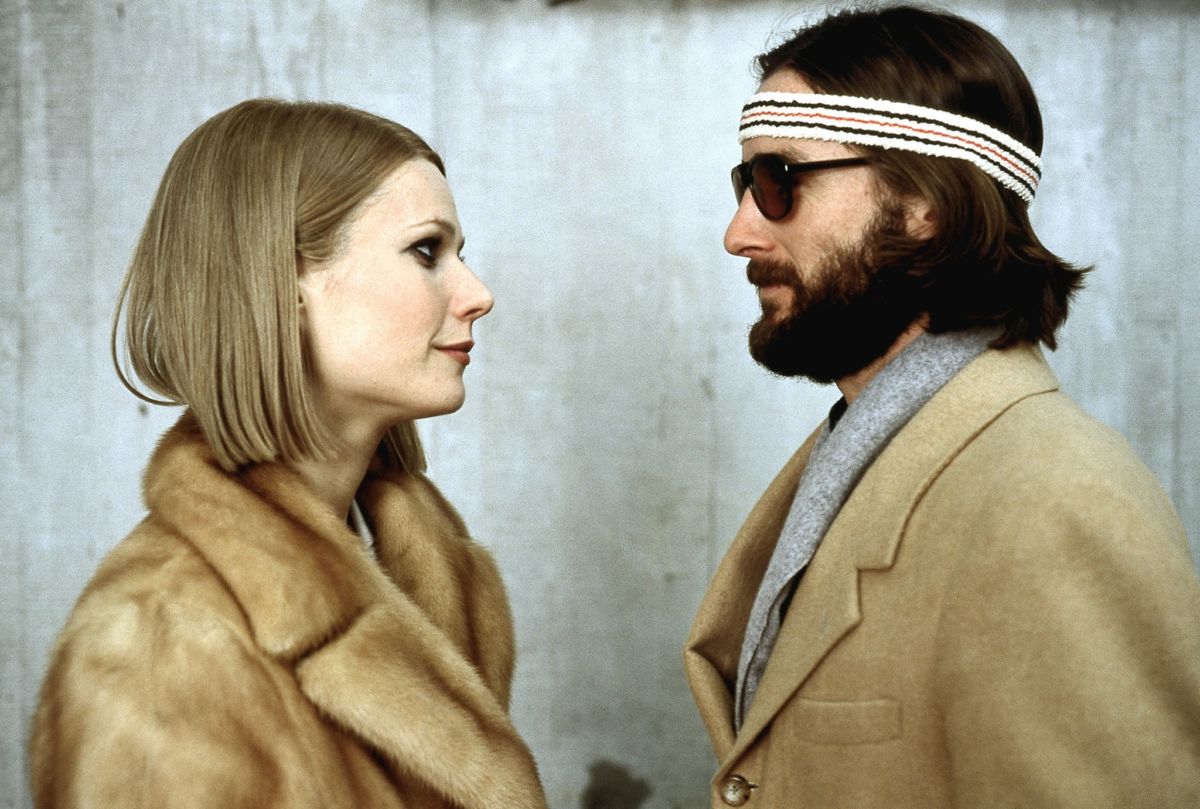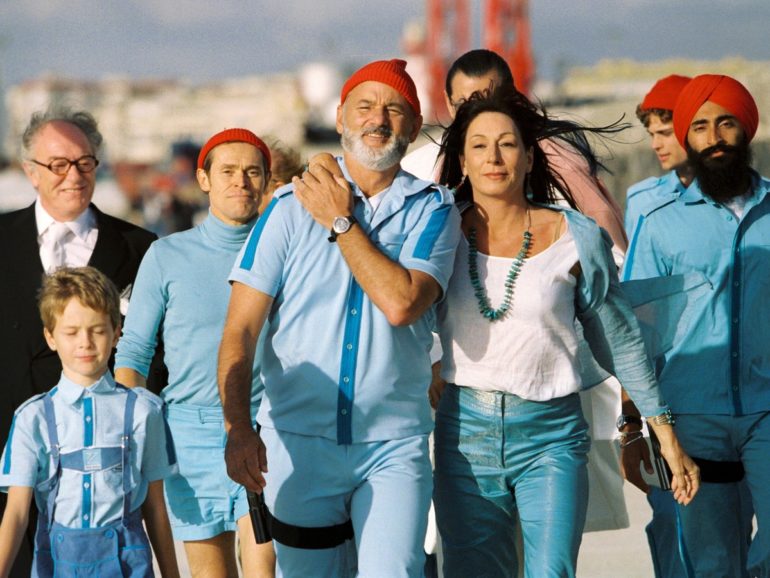There are few directors distinguished enough to be recognised by their cinematography alone. It doesn’t take a film buff to identify Wes Anderson’s established aesthetics, mostly made-up of symmetrical camera shots and precise colour palettes.
Anderson’s films are eccentric, charismatic and actually pretty funny, dabbling in animation as well as live-action films (such as his most recent hit Isle of Dogs in 2018). His newest movie, The French Dispatch, is set to release in 2020, starring Tilda Swinton, Timothée Chalamet, Kate Winslet and Saoirse Ronan.
Who is he?
Wes Anderson is an award-nominated writer and director from Texas, who began experimenting with filmmaking from a very young age. After his first movie Bottle Rocket received praise from critics (and director Martin Scorsese) in 1996, Anderson began forming his quirky visual and narrative styles, later granting him the status of an auteur.
Anderson mostly works in the drama, comedy and animation genres, although his unique trademarks have arguably made his films a genre of their own.
Style and Autership
Although Anderson works with tons of famous actors, big budgets and meticulous set designs, there is a rustic, indie quality to all his films. Anderson often uses handmade models, puppets and stop-animation over CGI; never trying to pretend that the effects look realistic. A certain charm is achieved through this, showing the dedication and care that’s gone into each hand-crafted set piece. His use of coordinated colour schemes and clever camerawork make Anderson one for all the hipsters out there, as well as critics who applaud Anderson’s control over the screen.
Certain narrative themes recur throughout Anderson’s filmography: strained family relations (usually in the form of distant parents or sibling rivalry), love triangles and a search for meaning play key roles in all of Anderson’s films. He also tends to work with the same pool of actors, including Bill Murray, Owen Wilson, Jason Schwartzman, Edward Norton, Tilda Swinton, Anjelica Huston, William Dafoe and many, many more.
Wes Anderson’s Best Movies

Isle of Dogs (2018)
Isle of Dogs is Anderson’s second animation film, following the family-hit Fantastic Mr. Fox back in 2009. In keeping with Anderson’s auteriship, Isle of Dogs is made using stop-motion animation, flexing his incredible eye for detail. Despite being an animation all about dogs, the PG-13 rating and slightly gruesome story aspects make it debatable whether the film is child-friendly. Nonetheless, it’s definitely one for the adults to enjoy, with clever storytelling and subtle humour that children would probably miss.
Isle of Dogs is set in a dystopian Japan (receiving some criticism for cultural stereotyping) where all dogs are banished to a remote island. However, one little boy decides canine-flu is no reason to be separated from his best friend and ventures bravely out to the island. The film features voices from Bryan Cranston, Edward Norton, Bill Murray, Jeff Goldblum and Frances McDormand.
The Life Aquatic with Steve Zissou (2004)
Bill Murray appears in almost all of Anderson’s movies, usually as a cameo or side character. But here, Murray takes a stab at the leading man role as an eccentric oceanographer. Seeking revenge on the shark that killed one of his crew members, Steve Zissou voyages out to make a documentary film of the sea that goes disastrously wrong. The Life Aquatic with Steve Zissou (or simply Life Aquatic) also stars Owen Wilson, Cate Blanchett, Willem Dafoe and Jeff Goldblum.
Life Aquatic features all of Anderson’s trademarks: stop-animation, a DIY model of the ship and moments of awkward comedy. The deadpan style of Anderson and Murray together make Life Aquatic an entertaining, one-of-a-kind experience, gaining a cult following as one of Anderson’s less appreciated movies.
The Darjeeling Limited (2007)
When three estranged brothers set out to visit their mother in the Himalayas, they’re reunited on a train journey across India. Owen Wilson, Adrien Brody and Jason Schwartzman are typical of Anderson’s feuding siblings, having not spoken since their father’s death a year before. The, often humorous, tension becomes an obstacle in the brother’s journey – both in the physical and emotional sense.
Aesthetically, The Darjeeling Limited is an awe-inspiring piece of indie cinema, utilizing bold colours and traditional Indian designs. It is also one of the more emotional films of Anderson’s filmography, probably due to its more realistic storyline when compared to some of his other outlandish work. The three brothers brim with chemistry, despite their constant battling (which makes for some hilarious scenes). Of course, Bill Murray also makes an appearance, but this time only lasting a couple of minutes – if that.
The Royal Tenenbaums (2001)
The Tenenbaums are probably the most dysfunctional family in cinema history. With divorced parents and three genius children – a mathematician-turned-businessman, a playwright and a tennis prodigy – their reunion is a little rocky, to say the least. Starring Danny Glover, Gene Hackman, Ben Stiller, Anjelica Huston, Gwyneth Paltrow and Bill Murray, The Royal Tenenbaums is absurd, ironic and undoubtedly original.
A whimsical tale centred around Anderson’s most favoured theme (family conflict and reunion), a balance of comedy and drama is perfectly struck. Alec Baldwin narrates what was cited as the inspiration for TV sitcom Arrested Development (2003), with 250 different sets used to evoke an other-worldly experience, not identifiable as New York City (where it was filmed).
Moonrise Kingdom (2012)
Moonrise Kingdom is perhaps Anderson’s most iconic film, especially amongst teens and film students. The pastel hues and vintage aesthetics give Anderson’s coming-of-age story a dreamy quality; Anderson favouring the old-school vibes through the props (books and record players) and retro wardrobe. You could pause Moonrise Kingdom at any point and be left with a stunning photograph, embroiled in Anderson’s vivid imagination.
Anderson explores themes of young love, immaturity and family when two pre-teens decide to run away into the wilderness. Set during the 1960s, the bonds of friendship are tested with the arrival of the adults – depicted as the enemy of adventure. The film was critically acclaimed for Anderson’s ability to create his own escapist world (a strength of all his movies) and self-conscious collection of oddities and wit. Moonrise Kingdom boasts a cast including Edward Norton, Bruce Willis, Bill Murray, Frances McDormand, Tilda Swinton and young stars Kara Hayward and Jared Gilman.
The Grand Budapest Hotel (2014)
The two most prevalent things about The Grand Budapest Hotel can be seen on the poster alone: its stellar cast and breathless, pink-imbued aesthetics. Ralph Fiennes, Jude Law, Adrien Brody, Tony Revolori, Willem Dafoe, Edward Norton, Harvey Keitel, Jeff Goldblum, Saoirse Ronan, Owen Wilson, Bill Murray, Tilda Swinton and Jason Schwartzman are just some of the notable faces appearing in the movie.
Set in the 1930s, a junior lobby boy becomes the apprentice – and friend – of an esteemed concierge. The two soon find themselves as unexpected suspects in a mysterious murder case, journeying through various landscapes of Budapest to escape the police. The Grand Budapest Hotel was filmed mostly in Germany, with three different aspect ratios connoting different time frames. The Oscar-winning soundtrack, offbeat comedy and emotive plotlines showed Anderson as not just visually stylistic, but able to achieve a narrative depth many artists lack.
Some of the coverage you find on Cultured Vultures contains affiliate links, which provide us with small commissions based on purchases made from visiting our site.

